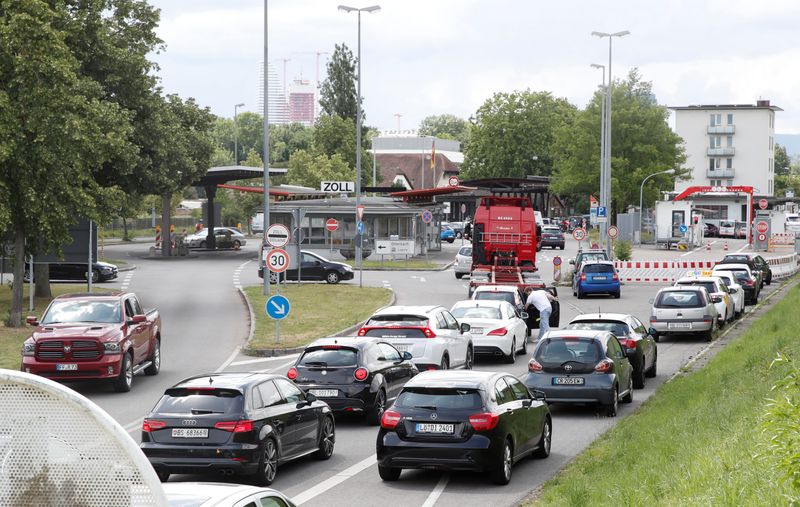By Kate Abnett
(Reuters) - Carbon dioxide emissions from new cars in Europe rose for a third year running in 2019, provisional data from the European Union's environment agency (EEA) showed on Friday, with carmakers further lagging the bloc's upcoming climate goals.
The European Commission said carmakers must significantly reduce their emissions or risk missing tougher EU targets coming into force this year.
"Manufacturers will have to improve the fuel efficiency of their fleet and accelerate the deployment of zero- and low-emission vehicles," it said.
Average emissions for new cars registered in the EU's 27 member states plus Britain, Iceland and Norway were 122.4 grams of CO2 per kilometre in 2019, an increase of 1.6g compared with 2018, the EEA said.
This was comfortably below the EU's target for last year of 130g of CO2 per kilometre, but far off tougher EU targets that take effect this year.
To meet those and avoid paying fines, carmakers would need to slash their emissions by 22% from 2019 levels. The 2020 target caps average CO2 emissions from new cars at 95g CO2/km.
Emissions climbed as fuel-guzzling SUVs continued to grow their share of the market, accounting for 38% of Europe's new car sales last year.
Average CO2 emissions from new vans also increased in 2019 for a second consecutive year.
Electric and hybrid vehicles made up 3.5% of new car sales in 2019, with Norway accounting for 56% of registrations.
EU car sales have plummeted this year as the coronavirus pandemic ravaged Europe's economies and lockdown measures to contain the virus kept millions of people at home.
The Commission urged member states to introduce incentive schemes for cleaner cars and invest in electric vehicle charging infrastructure to help push carmakers towards meeting emissions goals.

France and Germany have already unveiled electric vehicle purchase incentives as part of their coronavirus economic recovery packages.
